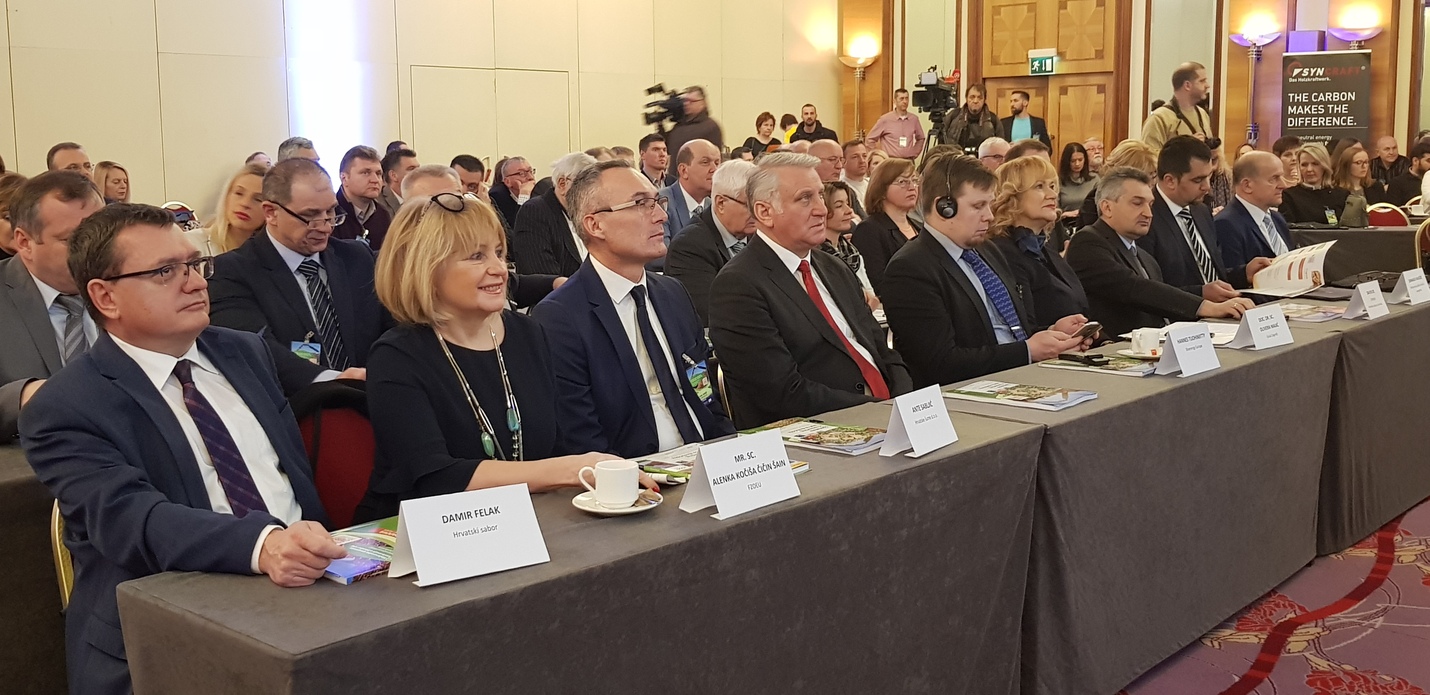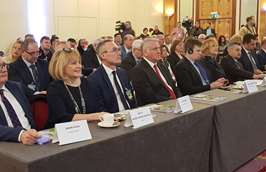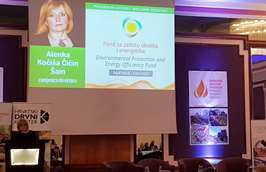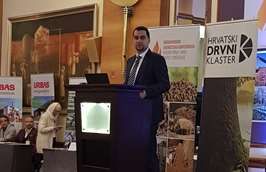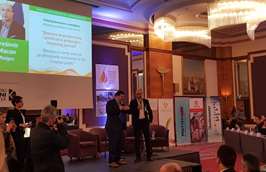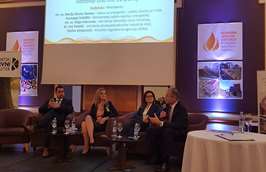25.02.2019.
Deputy Director Alenka Košiša Čičin-Šain participated in the 9th International Energy Conference on Biomass and Renewable Energy Sources, which was held in the Westin Hotel in Zagreb, organised by the Croatian Wood Cluster and the Croatian Biomass Association – CROBIOM.Taking account of climate change, the world economy will increasingly turn to renewable sources, and biomass is gaining importance. At the opening of the conference, Assistant Minister of Environment and Energy Domagoj Validžić announced the new Croatian energy policies until 2030 that are expected with interest by the entire sector, experts and the public, especially with regard to the incentives system. “The goal of the ministry is to set up the energy legislative framework to ensure the stability of investment and planning of future projects in this area”, concluded Validžić.
Through its programmes, the Fund stimulated the use of biomass as one type of renewable sources of energy, so the installation of the systems of renewable energy sources using pellets and wood chippings was financed to the units of local self-government, companies, and the citizens. The Fund also invested significant resources in the development of the biomass production plant.
"So far we have co-financed 84 such projects totalling 259 million kunas, while the Fund approved 48 million kunas of incentives. Within the energy renovation programme for houses, HRK 9 million was approved for 484 biomass boilers, and in the last year’s tender under which we co-financed the use of RES for households, resources for 235 pellet boilers were approved”, said Alenka Košiša Čičin-Šain, Deputy Director of the Fund, adding that in the upcoming years the Fund was planning to continue with these types of investments, with special attention to energy poor citizens in Croatia.
The goal of the Republic of Croatia until 2020 is to generate around 26 petajoules of energy from biomass. This will require significant funding that will partly be provided from the emissions allowances trading system. The preparation of the Draft National Forestry Accounting Plan, including the proposed Forest Reference Level in the period 2021 – 2025 is also very important. With this act for the first time the Land Use, Land Use Change and Forestry sector (LULUCF) and greenhouse gas sinks/emissions will be calculated in terms of contribution of the LULUCF sector to the goal of reducing GHG emissions in the EU. Analyses show that without the inclusion of LULUCF it will not be possible to fulfil the goal EU has set, which is a 40% reduction of carbon emissions by 2030.
“As a financial institution, the Fund will continue supporting all development programmes, regardless of whether they relate to stimulating the use of RES or adjustment to the climate change, which is becoming more obvious on a daily basis", concluded Košiša Čičin-Šain.
Presently, more than 280,000 tonnes of pellets produced in Croatia – around 90% - are exported, thus improving the energy balance of other countries. Producers of pellets and other firewood warned of a drop in prices on the international market, and said they expected greater support from the ministry and state institutions in stimulating domestic consumption by reducing VAT and subsidising the heating systems using renewable energy sources in public buildings.
The Croatian Biomass Association CROBIOM considers that it is necessary to increase the energy value of wood and keep the wood in the country, meaning use it near the place of production, primarily reducing transportation costs, CO2 emissions, and employing the local labour, pointed out the president of CROBIOM, Davor Zec.
"Hrvatske šume, apart from regulating the energy raw material market, are investing substantial funding in new technologies aimed at mobilising additional quantities in the estimated range of 500,000 to 1 million cubic meters of biomass”, said Chairman of the Board Krunoslav Jakupčić, adding that the company Hrvatske šume was setting an example by their own use of biofuel as over a 1-year period they had installed 80 pellet furnaces in their plants.
The President of the association European Bioenergy, Hannes Tuhinniitty, announced that the standardisation scheme for wood chippings would be introduced, which was assessed to be an essential tool for establishing market balance.
At the conference it was concluded that the acceleration of energy transition and introduction of administrative order in the RES subsector will improve the opportunities in the sector, and that in the future these opportunities have to be based on the least possible impact on the climate change, i.e. “dominant production of green energy” that will emit low levels of carbon, and will keep Croatia high up on the scale of countries with a high share of RES.
